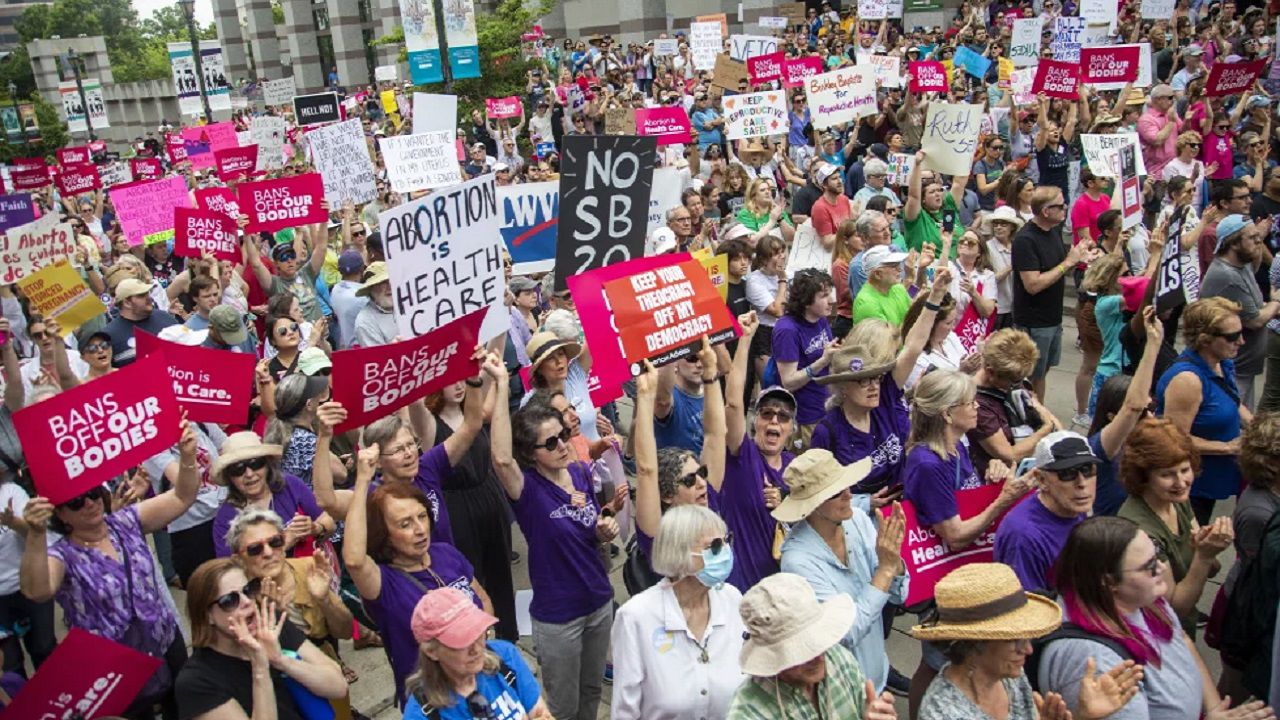GREENSBORO, N.C. (AP) — A federal judge said Wednesday that she won’t temporarily block most of a newly revised abortion law from taking effect this weekend in North Carolina, including a near-ban on the procedure after 12 weeks of pregnancy.
U.S. District Judge Catherine Eagles said at a court hearing that she won’t grant the request by lawyers for Planned Parenthood South Atlantic and a physician to set aside most of the new restrictions before they are to come into force on Saturday, calling it overbroad.
The 12-week ban, which was approved in the spring by North Carolina’s Republican-controlled General Assembly and includes new exceptions for rape, incest and “life-limiting” fetal anomalies, would replace the current ban on most abortions after 20 weeks.
The abortion providers claim in litigation that several specific provisions affecting doctors and patients in the new law approved by the General Assembly are so contradictory, vague and unconstitutional that all new restrictions starting July 1 needed to be aside for now.
Eagles said repeatedly during the 2 1/2-hour hearing that she didn’t yet know whether she would issue any temporary restraining order. But any such directive would be a “narrower injunction” limited to specific provisions being challenged in the providers’ lawsuit, she said.
“I don’t see any way that I’m going to enjoin Part I in its entirety,” Eagles said, referring to the portion of the law containing the broad 12-week ban and the rules for carrying it out, Eagles told the attorneys.
Complicating any order she might issue is that the legislature finalized this week revisions to the new law that attempt to fix many of the challenged provisions. That legislation sat Wednesday on the desk of Gov. Roy Cooper. The Democratic governor is a strong abortion-rights supporter who vetoed this spring the abortion law that GOP lawmakers ultimately enacted with an override.
The clean-up measure passed with overwhelming bipartisan support, with some Democrats who fought the new abortion law stating it was better to make a very bad law less onerous. The state constitution gives Cooper until July 7 to sign the bill or veto it. Otherwise, it will become law without his signature. He can act before the 10-day deadline.
Ellis Boyle, an attorney for House Speaker Tim Moore and Senate leader Phil Berger, argued that a temporary restraining order should be fully denied, pointing to the strong legislative support for the revisions. Such orders last 14 days, but they can be extended.
Otherwise, the goal of the plaintiffs, Boyle told Eagles, is to “have the 12-week abortion standard undone.”
Planned Parenthood attorney Peter Im told reporters after the hearing that starting the 12-week ban this weekend would be “devastating.”
The plaintiffs and state Attorney General Josh Stein — officially a defendant in the lawsuit — said the revisions, if enacted, would resolve most, but not all of the lawsuit’s allegations against itemized provisions.
The revisions, for example, attempt to make clear that medication abortions are permitted through 12 weeks just like procedural abortions — often referred to as surgical abortions. But the legal parties differ whether an amendment makes clear it’s lawful for someone to help a woman obtain an abortion outside of North Carolina in states where the procedure would remain lawful beyond the new ban’s limits.
Brigitte Amiri, an American Civil Liberties Union attorney representing the lawsuit plaintiffs, told Eagles a restraining order is needed because some challenged provisions remain unresolved. She also said it’s unclear when and how Cooper will act on the pending clean-up legislation. Abortion providers, she added, also need time to understand any changes.
“We still need a time to comply even though the amendments would moot many of our claims,” Amiri said.
Boyle said other remaining differences could be worked out between the parties or at a future hearing.
Stein, a Democrat and another abortion-rights supporter, said last week his office wouldn’t defend in court parts of the new abortion law because he agrees that many provisions being challenged are unconstitutional. A top deputy answered questions and made arguments Wednesday.
North Carolina has been one of the few remaining Southern states with relatively easy access to abortions in the wake of last year’s U.S. Supreme Court decision to strip away constitutional protections for abortion.



